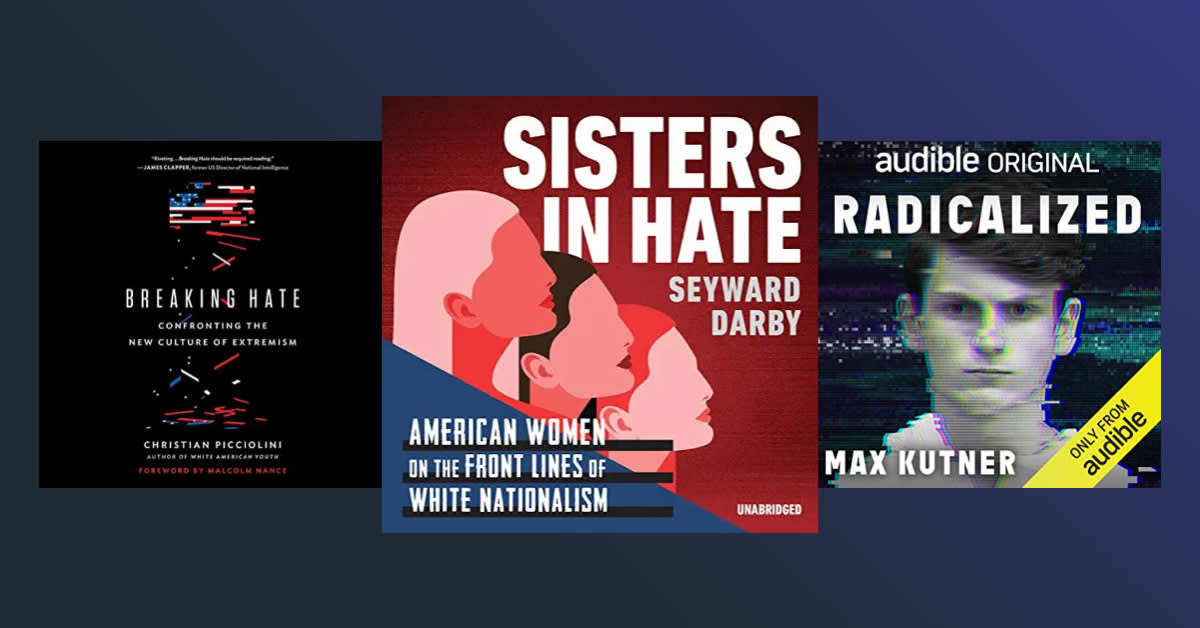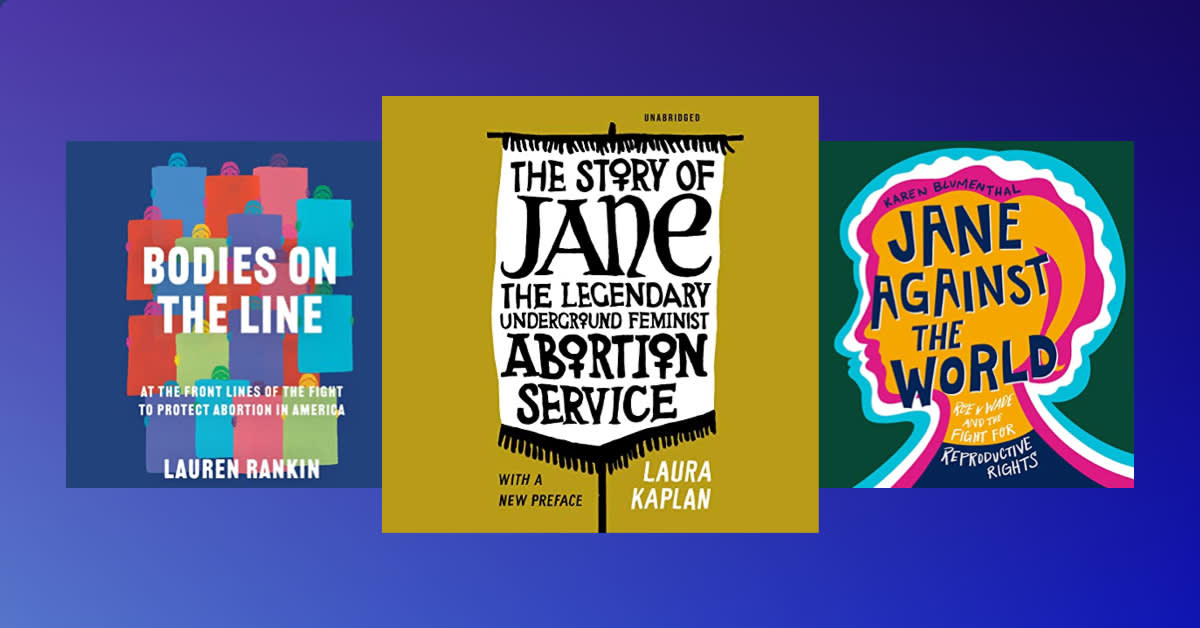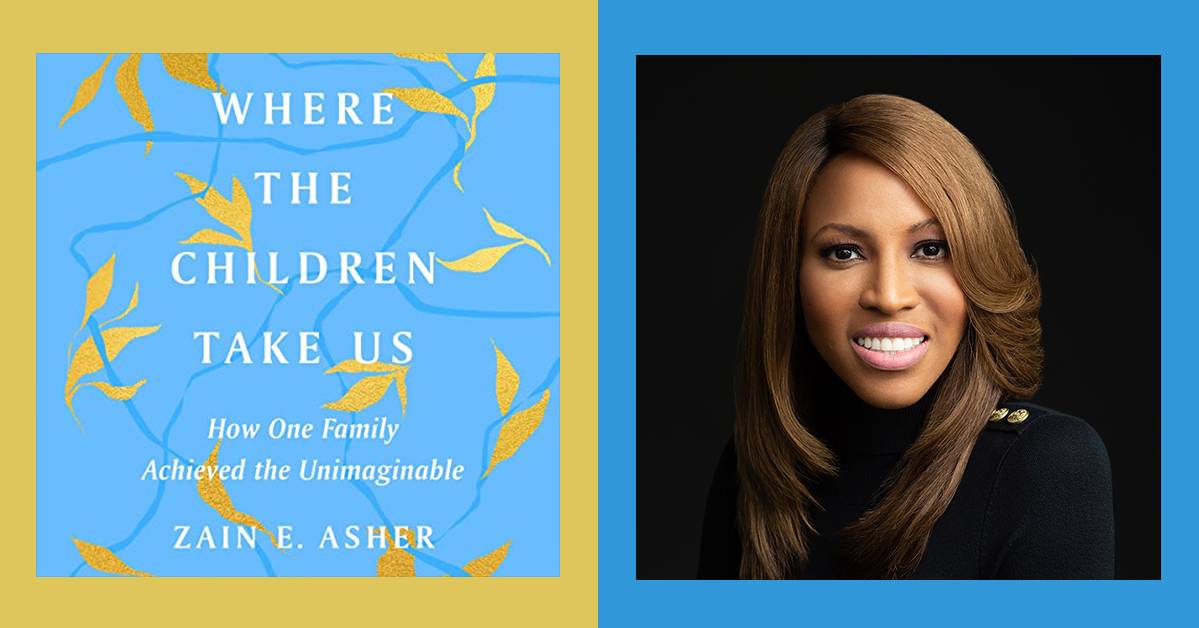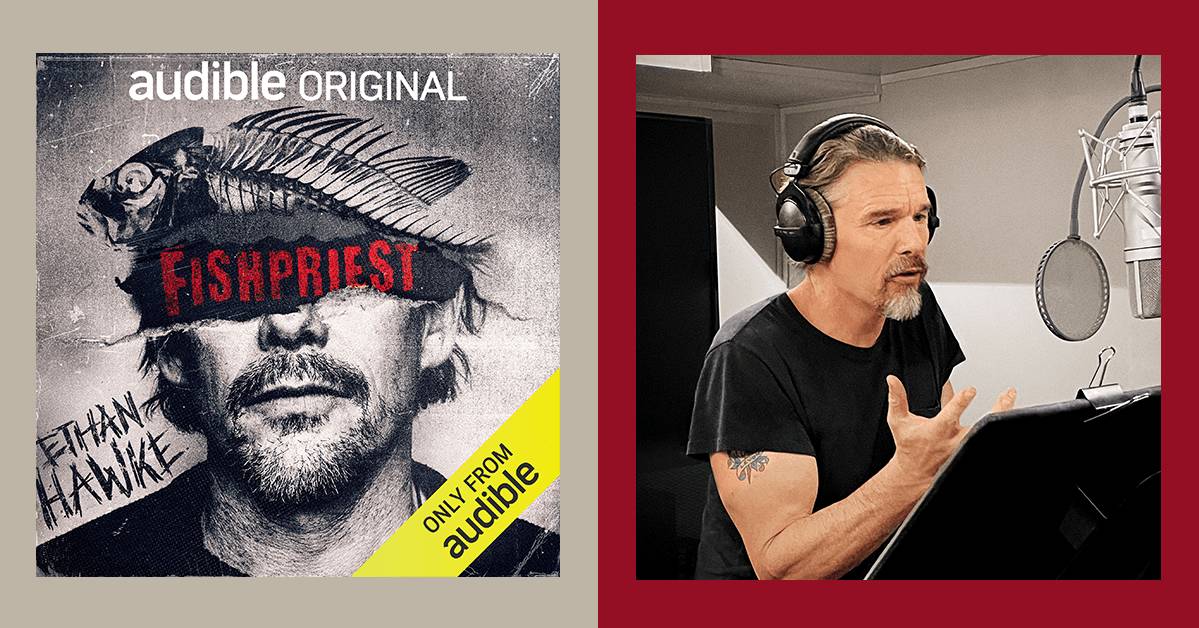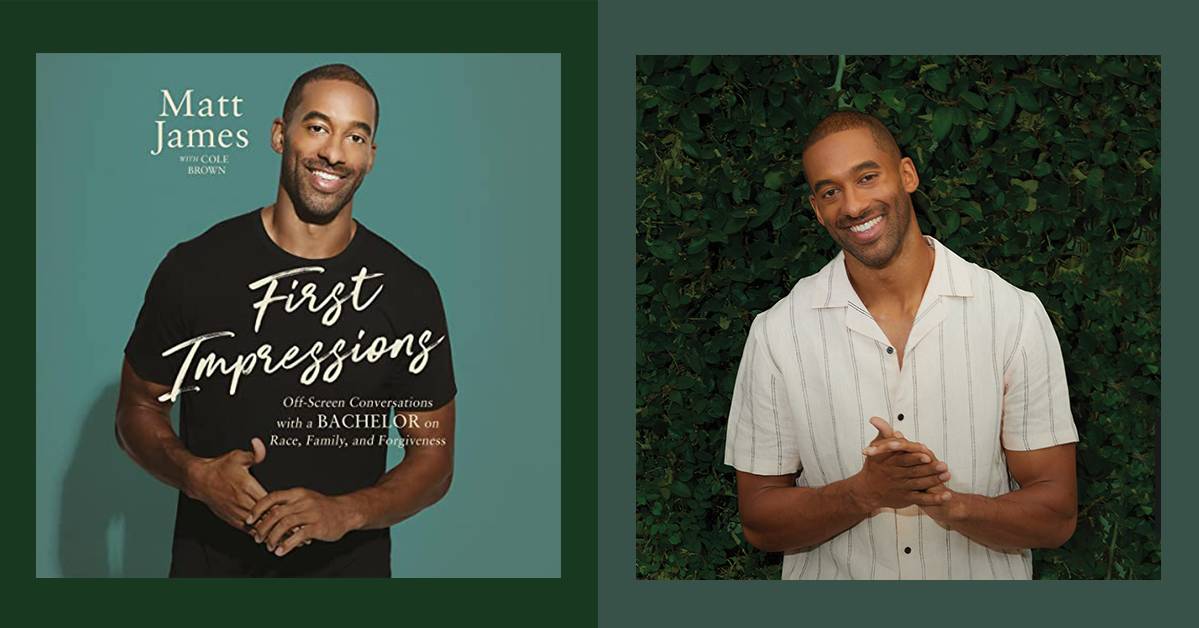The shooting at an elementary school in Uvalde, Texas, is the latest in a horrifying spree of gun violence in the United States. It occurred just 11 days after the devastating massacre in Buffalo, New York, which has left survivors traumatized and countless others grieving as we search for answers.
It's impossible to fathom the incalculable pain of those who lost loved ones in these tragedies, but the fact that the Buffalo shooting has been linked to the racist "great replacement" conspiracy theory that's become increasingly mainstream in a number of Western countries is causing ripples of fear among many communities. Kathleen Belew, an expert on the white-power movement, gave further context by explaining how it manages to “connect things such as abortion, immigration, gay rights, feminism, residential integration—all of these are seen as part of a series of threats to the white birth rate.”
To help further understand how people can become radicalized and what we can do to combat this sort of domestic terrorism, I asked award-winning journalist Max Kutner, who created the Audible Original Radicalized, to help provide context. His seven-part docuseries explores a recent case of a young American man named Devon Arthurs who went from one extremist movement to another. As Kutner explains, it suggests that “some people are susceptible to radicalization regardless of ideology.”
“The Buffalo suspect probably wasn't an expert on the ideologies he espoused,” Kutner says. “Like Arthurs, he probably wanted to add meaning to his life and be part of a community, and pursued those goals in violent, tragic ways. One takeaway could be that society should try to steer people toward healthy pathways to meaning and community. Keeping those people away from weapons and extremist content online could also help.”
Audible: In Radicalized, you lay out how Devon Arthurs went from neo-Nazism to Islamic extremism and how easily people, especially young men, find pathways to “extremism” through online communities. After the Buffalo shooting, were you surprised to hear that there was yet another person who decided to arm himself as a vigilante and try to “fix” what he saw as a threat?
Max Kutner: Having spent years following the Devon Arthurs case, little about the Buffalo shooting surprised me. Violent extremists believe there is a problem in the world and that they must solve it through violence. And the internet has made it easier for people to learn about that mindset. The Buffalo suspect reportedly spent time on the same website Arthurs frequented. Also like Arthurs, the Buffalo suspect then had access to a weapon.
When President Biden visited Buffalo after the shooting, he stated: “White supremacy is a poison.” Yet it’s not so unusual that people are sharing manifestos and reinforcing racist theories in the mainstream now. What once seemed fringe and relegated to the “dark web” is now often discussed much more freely and not being stopped. Do you think it is social media and other tech platforms’ responsibility to restrict and monitor and try to curb this sort of behavior?
Without social media, extremists I interviewed probably would never have radicalized. An idea I discussed with experts was for social media platforms to include disclaimers in the results for searches about extremism. Many platforms already have such disclaimers for topics like COVID.
We are sharing a list of pertinent audiobooks with the intention to educate people on a complex topic. But there is always the concern that it is also platforming and giving attention and somehow normalizing white supremacy and extremism in the process. What do you think we can or should do to share information without seemingly promulgating an insidious strain of thinking?
While working on my podcast, I asked experts about whether discussing extremist ideologies might unwittingly spread those beliefs. But the experts said ideologies are spreading anyway and so it's helpful for journalists to responsibly report on them. There are ways to minimize the risk of spreading ideologies and movements. One way is to put extremist content like memes or screeds into context, without sharing the original content. Another way is to share stories about victims and survivors, not just extremists and perpetrators.
The Audible Editors have curated a list of titles that may help listeners better understand the origins of these racist conspiracy theories and cope with the recent act of terror.
Save this list to your library Collections.
The white power movement in America wants a revolution. It has declared all-out war against the federal government and its agents, and has carried out - with military precision - an escalating campaign of terror against the American public. Its soldiers are not lone wolves but are highly organized cadres motivated by a coherent and deeply troubling worldview of white supremacy, anticommunism, and apocalypse.
Kathleen Belew's Bring the War Home argues for awareness of the heightened potential for paramilitarism in a present defined by ongoing war.
In 2017, Devon Arthurs went from neo-Nazism to Islamic extremism, and he allegedly murdered his two roommates in defense of his new Muslim faith. In Radicalized, a seven-part docu-series, reporter Max Kutner investigates how Devon went from one extreme to another, shedding light on the online pathways to radicalization. He discovers maybe neo-Nazis & jihadis have more in common than we think.
This original podcast is seven episodes, please begin with the episode titled ‘Devon Arthurs.’ [Contains sensitive content]
As he stumbled through high school, struggling to find a community among other fans of punk rock music, Christian Picciolini was recruited by a now notorious white power skinhead leader and encouraged to fight with the movement to "protect the white race from extinction."
Raw, inspiring, and heartbreakingly candid, White American Youth tells the fascinating story of how so many young people lose themselves in a culture of hatred and violence and how the criminal networks they forge terrorize and divide our nation.
Two years ago, frustrated by reactionary policy conversations that never seemed to convert into meaningful action, special investigator and psychologist Jill Peterson and sociologist James Densley started building The Violence Project, the first comprehensive database of mass shooters. Their goal was to establish the root causes of mass shootings and figure out how to stop them. With funding from the United States Department of Justice, they have coded hundreds of data points in the life histories of more than 150 mass shooters - from their childhood and adolescence to their mental health and motives. They’ve also interviewed seven living perpetrators, along with families, friends, teachers, social workers, victims and leading experts.
After the election of Donald J. Trump, journalist Seyward Darby went looking for the women of the so-called "alt-right" - really just white nationalism with a new label. The mainstream media depicted the alt-right as a bastion of angry white men, but was it? As women headlined resistance to the Trump administration's bigotry and sexism, most notably at the Women's Marches, Darby wanted to know why others were joining a movement espousing racism and anti-feminism. Who were these women, and what did their activism reveal about America's past, present, and future? Sisters in Hate shows how the work women do to normalize and propagate racist extremism has consequences well beyond the hate movement.
Between 1910 and 1920, vigilantes and law enforcement—including the renowned Texas Rangers–killed Mexican residents with impunity. The full extent of the violence was known only to the relatives of the victims.
Martinez reconstructs this history from institutional and private archives and oral histories, to show how the horror of anti-Mexican violence lingered within communities for generations, compounding injustice by inflicting further pain and loss. Yet its memorialization provided victims with an important means of redress, undermining official narratives that sought to whitewash these atrocities. The Injustice Never Leaves You offers an invaluable account of why these incidents happened, what they meant at the time, and how a determined community ensured that the victims were not forgotten.
What is the alt-right? What do they believe, and how did they take center stage in the American social and political consciousness? Historian Alexandra Minna Stern excavates the alt-right memes that have erupted online and digs to the root of the far right’s motivations: their deep-seated fear of an oncoming “white genocide” that can only be remedied through aggressive action to reclaim white power.
Through careful analysis, Stern brings awareness to the underlying concepts that guide the alt-right and its overlapping forms of racism, xenophobia, and transphobia. She explains the key ideas of “red-pilling”, strategic trolling, gender essentialism, and the alt-right’s ultimate fantasy: a future where minorities have been “cleansed” from the body politic and a white ethnostate is established in the United States. By unearthing the hidden mechanisms that power white nationalism, Stern reveals just how pervasive the far right truly is.
In the United States today, one in every 31 adults is under some form of penal control, including one in 11 African American men. How did the "land of the free" become the home of the world's largest prison system? Challenging the belief that America's prison problem originated with the Reagan administration's War on Drugs, Elizabeth Hinton traces the rise of mass incarceration to an ironic source: the social welfare programs of Lyndon Johnson's Great Society at the height of the civil rights era.
Johnson's War on Poverty policies sought to foster equality and economic opportunity. But these initiatives were also rooted in widely shared assumptions about African Americans' role in urban disorder, which prompted Johnson to call for a simultaneous War on Crime.
Republic of Lies looks beyond the caricatures of conspiracy theorists to explain their tenacity. Without lending the theories validity, Anna Merlan gives a nuanced, sympathetic account of the people behind them, across the political spectrum, and the circumstances that helped them take hold. The lack of a social safety net, inadequate education, bitter culture wars, and years of economic insecurity have created large groups of people who feel forgotten by their government and even besieged by it.
Bringing together penetrating historical analysis and gripping on-the-ground reporting, Republic of Lies transforms our understanding of American paranoia.
In this taut inquiry, Sarah Posner digs deep into the radical history of the religious right to reveal how issues of race and xenophobia have always been at the movement’s core, and how religion often cloaked anxieties about perceived threats to a white, Christian America. Fueled by an antidemocratic impulse, and united by this narrative of reverse victimization, the religious right and the alt-right support a common agenda – and are actively using the erosion of democratic norms to roll back civil rights advances, stock the judiciary with hard-right judges, defang and deregulate federal agencies, and undermine the credibility of the free press. Revelatory and engrossing, Unholy offers a deeper understanding of the ideological underpinnings and forces influencing the course of Republican politics. This is a book that must be listened to by anyone who cares about the future of American democracy.
Six years ago, Vegas Tenold embedded himself among the members of three of America's most ideologically extreme white nationalist groups - the KKK, the National Socialist Movement, and the Traditionalist Workers Party.
At the time, these groups were part of a disorganized counterculture that felt far from the mainstream. But since then, all that has changed. Racially motivated violence has been on open display at rallies in Charlottesville, Berkeley, Pikesville, Phoenix, and Boston. Membership in white nationalist organizations is rising, and national politicians, including the president, are validating their perceived grievances. Everything You Love Will Burn offers a terrifying, sobering inside look at these newly empowered movements, from their conventions to backroom meetings with Republican operatives.
With his family’s 1815 Bible in one hand and contemporary public opinion surveys by Public Religion Research Institute (PRRI) in the other, Robert P. Jones delivers “a refreshing blend of historical accounting, soul searching reflection, and analysis” of the repressed relationship between Christianity and white supremacy. White Too Long is “a marvel” (Booklist, starred review) that demonstrates how deeply racist attitudes have become embedded in the DNA of white Christian identity over time and calls for an honest reckoning with a complicated, painful, and even shameful past.
Today's extremist violence surges into our lives from what seems like every direction - vehicles hurtling down city sidewalks; cyber-threats levied against political leaders and backed up with violence; automatic weapons unleashed on mall shoppers, students, and the faithful in houses of worship. As varied as the violent acts are the attackers themselves - neo-Nazis, white nationalists, the alt-right, InCels, and Islamist jihadists, to name just a few. In a world where hate has united communities that traffic in radical doctrines and rationalize their use of violence to rally the disaffected, the fear of losing a loved one to extremism or falling victim to terrorism has become almost universal.
Told with startling honesty and intimacy, Breaking Hate is both the inside story of how extremists lure the unwitting to their causes and a guide for how everyday Americans can win them - and our civil democracy - back.
For several years, Andrew Marantz, a New Yorker staff writer, has been embedded in two worlds. The first is the world of social-media entrepreneurs, who, acting out of naïvete and reckless ambition, upended all traditional means of receiving and transmitting information. The second is the world of the people he calls "the gate crashers" - the conspiracists, white supremacists, and nihilist trolls who have become experts at using social media to advance their corrosive agenda. Antisocial ranges broadly - from the first mass-printed books to the trending hashtags of the present; from secret gatherings of neo-fascists to the White House press briefing room - and traces how the unthinkable becomes thinkable, and then how it becomes reality.
Talia Lavin is every skinhead's worst nightmare: a loud and unapologetic Jewish woman, acerbic, smart, and profoundly antiracist, with the investigative chops to expose the tactics and ideologies of online hatemongers.
Culture Warlords is the story of how Lavin, a frequent target of extremist trolls (including those at Fox News), dove into a byzantine online culture of hate and learned the intricacies of how white supremacy proliferates online. Within these pages, she reveals the extremists hiding in plain sight online: incels, white nationalists, white supremacists, National Socialists, Proud Boys, Christian extremists. By combining compelling stories chock-full of catfishing and gate-crashing with her own in-depth, gut-wrenching research, she also turns the lens of anti-Semitism, racism, and white power back on itself in an attempt to dismantle and decimate the online hate movement from within.
